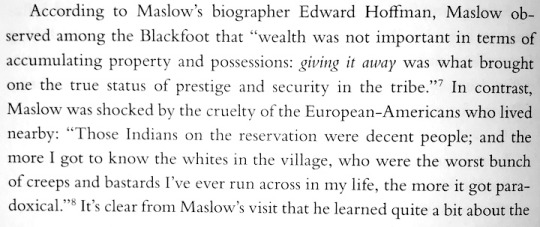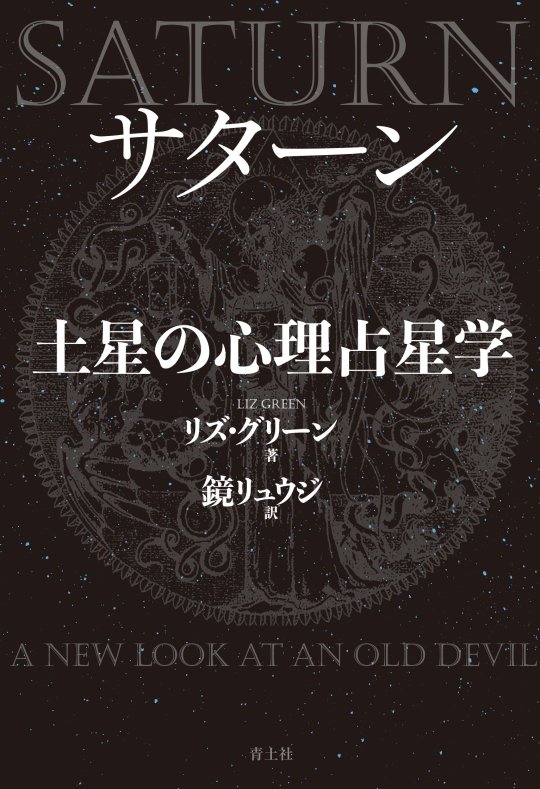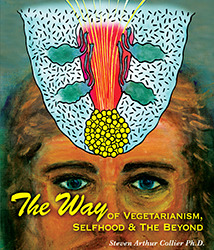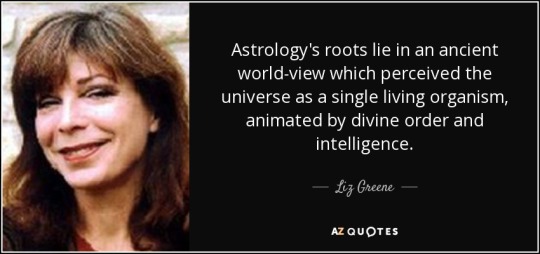#transpersonal psychology
Text

“Psychedelics are for psychiatry and psychology to what the microscope is for biology and the telescope is for astronomy.” ~Stanislav Grof
#ayahuasca#plant medicine#psychoactive substances#vision#consciousness#enthogenics#shaman#shamanism#transpersonal psychology#psychology
115 notes
·
View notes
Photo

21.10.22
Just repotted some succulents into a terrarium, have gone through a final check of my dissertation against the mark scheme, sent off the draft, and configured what I will do for my spiritual modality in my new Integral practice schedule.
2/100DOP
#light academia#studyblr#dark academia#cottagecore#cottage academia#mastblr#psychblr#transpersonal psychology#eternal starshine#studyspo#studyinspo#notes#student#integral practice
35 notes
·
View notes
Text
Maslow and the Lost Shore of Becoming


-from Transcend: The New Science of Self-Actualization, by Scott Barry Kaufman
Humanistic psychologist Abraham Maslow has been and still is one of the biggest influences on my thinking about myself, others and the world.
His optimism about the human condition combined with the idea that perhaps we've collectively only begun to really explore "the further reaches of human nature" (book title of Maslow's from 1971), was thrilling to encounter for the first time and is sufficiently rich in theoretical reach to occupy anyone for a lifetime in either academic research or self-discovery and development.
Inspired by the promising adventure of humanistic psychology's wide vista and undefined horizon, you're tempted to explore adjacent areas of psychology motivated by the primary question of 'What have we missed about ourselves or lost along the way?'
I launched into readings in transpersonal psychology, the science and practice of meditation, psychedelic psychology, postformal stage stage theories, and more, but then a new reality glared back: These optimistic visions of human function are all too often the purview of the affluent.
Social conditions aren't robustly structured around human flourishing anywhere on earth. There's no unified philosophical and political vision of the individual and the social working in reciprocal harmony in a consciously progressively self-evolving framework that encompasses all areas of life. I don't believe in top-down masterplans into which human life must be pressed or shoved, but we're so far off from what you might posit as the basic conditions of humanistic flourishing that to understand this is to invite alienated consciousness into your daily awareness.
"What are the effects of living in a dishonest world, an evil world, an ugly world, a split, disintegrated world, a dead, static world, a world of clichés and stereotypes, an incomplete, unfinished world, a world without order or justice, an unnecessarily complicated world, an oversimplified world, an effortful world, a humorless world, a world without privacy or independence?"
-Abraham Maslow, from Farther Reaches of Human Nature
#abraham maslow#scott barry kaufman#humanistic psychology#self-actualization#transpersonal psychology
2 notes
·
View notes
Text

Liz Greene
We've got your request
0 notes
Text
Maslow: helps to create one of the coolest areas of psychologist (humanistic theory), creates the hierarchy of necessities (that implies potential is related to equality people who don't have their basic needs met can't get their full potential.
Also Maslow: Fuck it. Let's do the hippie pipeline of try asian religions in a vaguely racist way and use a lot of drugs to transcend. Calls it transpersonal psychology (you may have realized I do not like transpersonal psycholgy).
1 note
·
View note
Text

The Intellect: an aspect of life that is fleeting and dynamic.
"Intellectual Wellness is strengthened by continually engaging the mind." "Every night before we go to sleep, we must ask ourselves: What weakness did I overcome today? What virtue did I acquire? Intellect refers to, describes, and identifies what is true and what is false in our realities..." Dr. Sixto
Intellectual thinking lies in the way that we look at our personal growth and development. In the confusion that life may present, in the behavioral quandaries that we may encounter, the intellect asks, how can I live harmoniously and productively? And the intellect will go further to observe how to create a life that will create excellence not only for the Self but also for Others. We are not talking about the moral aspects of right and wrong. We are talking about the human intellect, the capacity in that intellect of the awareness and understanding to generalize experiences, to work with abstract terms, and to make conclusions from assumptions to reach higher consciousness; stimulating us to transcend our primal animal instincts and move past self-interest and cravings. Hmmm, that is a lot to think about, quite a mouthful really!
The intellect helps us to go beyond living in a reactionary state to a place where we take a more proactive approach to life. In a proactive frame of mind, the mind considers the overall state of the being and develops solutions to avoid similar “chaos” in the future. In other words, being proactive will more likely promote a behavioral foundation with less stress, where the unanticipated consequences of life are less impactful on the psyche. Easier said than done?
Those cogs and wheels, if rightly lubricated are the force that keeps societies moving forward. It is the capacity for intellectual thinking that empowers cultures to be their very best. It is not about intelligence. Having intellect is a thinking process by which we attain a level of personal fulfillment in life and equips us to face life more creatively and productively.
I am sure I am not the only one who has met an Ivy League graduate who “lacks” intellectual abilities. The intellect lends itself to all aspects of well-being as when we exercise the power of our intellect it means that we are doing the best with what we know, right now at this present moment. Exercising the intellect, therefore, is a lifelong discipline and therefore an equally important discipline in the 8 disciplines (pillars) of Holistic Wellness. Every time we exit our surroundings into the outside world, we come back to where we started a different person. Some occurrence, some encounter, such as stopping to smell a vibrant red rose with its intoxicating fragrance changes a perspective in our soul. It is a new experience, a new way of looking at ourselves, and we grow. When we grow we use our intellect.
Keeping the mind sharp it has been shown, creates new connections between brain cells (new behaviors are born) by changing the balance of available neurotransmitters and changing how connections are made,” In other words, staying sharp means stimulating more brain cells, in modern science, we call this growth of new cells a process called Neurogenesis. The concept evolves into a simple meaning: learning and intellect is a lifetime process. Our brains demand that we exercise our intellect to address the impermanence of life, the ever-changing nature. Due to this impermanence life seems to create quite a bit of fear. Yet without change we stagnate, we stall, and our lives may even become less of a thrill something that should never be in question: The thrill of life.
“Two elements must therefore be rooted out once for all, —the fear of future suffering, and the recollection of past suffering; since the latter no longer concerns me, and the former concerns me not yet.” – Seneca
Unknowingly my life has been an experiment in impermanence and all for the good. From leaving my homeland at an early age fleeing from what would eventually destroy the country and its society, to growing up within a culture of different values to the perplexity of my self-discovery. College was a life-changer, I toured Europe, studied in Paris, France, and visited the homeland of my grandparents, the Canary Islands. This trip was influential in opening my intellect to even more growth opening my eyes to life’s riches. I finished grad school, got stuck in uninspiring jobs, then found great joy in a career that would later push me to rebuild and rethink my life. Through hardships and there were many, I arrived at my present stage, here I am, a doctor in Holistic Health and Nutrition, what I feel was my life’s calling all along. Was it a thrill? absolutely not. Was it fulfilling? wouldn’t change a thing, well, just a couple of things.
As I sit here and write this piece, I know that more change is to come and I will accept the thrill and keep on moving. There are new people to meet, more places to see, and more disciplines to enjoy. There is always change, life is impermanent, and exercising our intellect is paramount for us to effectively deal with change and seek a beautiful joyful state in life. “We should just live, and let life be, instead of constantly preparing ourselves to live” (paraphrasing Seneca, Roman (Spanish) philosopher). Let’s let things be, and let us let things happen the way they happen, stop controlling what has already been determined, in some way, is meant for us. We should focus on the present and not live our lives worrying about what is to come.
Intellectual Wellness is about feeding your curiosity through learning, switching from the rigid to the flexible brain. Using our neuroplasticity we can expand our knowledge and skills to help live a full, engaging life. Intellectual Wellness is strengthened by continually engaging the mind. Doing so can help you build new skills and knowledge that inspire and challenge you, and help you grow. You might choose different ways to keep your mind sharp—depending on your mood. Sharpen meditation skills, try brain self-care such as brain games, puzzles, or exercises in mental wellness. Enjoy a new scholastic endeavor such as learning a foreign language (bilingualism has been shown to provide many cognitive benefits and fortify the mind, experiencing less cognitive decline in later years1), or even simply engaging in intellectually stimulating conversations and debates can strengthen this Holistic Wellness discipline. In other words, less television and more interaction with others, getting involved in the community, or other avenues of personal growth can stimulate the experience of an intellectual boon.
Intellectual wellness is focused on strengthening your mind by continually engaging your curiosity, expanding your knowledge, and building new skills to inspire, challenge, and help one another grow and live full lives in healthy living environments free of extreme ideologies. In today’s world, we need to deter those egocentric intellectuals or those with the inability to understand that another person’s view or opinion may be different than their own. In the study of the human mind, intellect refers to, describes, and identifies the ability of the human mind to reach correct conclusions about what is true and what is false in reality or their reality; and how to solve problems. The discussion of intellect is in two areas of knowledge2 that concern the relationship between intelligence and intellect.
Being socially engaged may help fend off social isolation and depression, both of which have been linked with a decline in cognitive functioning. Having good social support also reduces stress, another aspect of negativity on thinking and cognitive skills. This takes me to the topic of what are Cognitive Skills. Cognitive Skills are the core skills your brain uses to think, read, learn, remember, reason, and pay attention. Working together, they take incoming information and move it into the bank of knowledge you use in everyday life. Each of your cognitive skills plays an important part in processing new information. That means if even one of these skills is weak, no matter what kind of information is coming your way, grasping, retaining, or using that information is impacted. It is safe to say then that most behavioral quandaries are caused by one or more weak cognitive skills.
Every night before going to sleep, we must ask ourselves: What weakness did I overcome today? What virtue did I acquire? What can I do to achieve serenity in my life? What matters: The intellect.
1 Marian, V., & Shook, A. (2012). The cognitive benefits of being bilingual. Cerebrum : the Dana forum on brain science, 2012, 13. National Library of Medicine. Retrieved August 22, 2022, from https://www.ncbi.nlm.nih.gov/pmc/articles/PMC3583091/Accessed 8/23/22
2 Knowledge - Wikipedia. (2022). Retrieved 23 August 2022, from https://en.wikipedia.org/wiki/Knowledge
#awareness#Health#HigherPower#IntellectualWellness#Lifeisinsession#LifeSkills#MentalWellbeing#mindfulness#mindfulnessandbeauty#psychology#selfcare#society#Spirituality#transpersonal
2 notes
·
View notes
Text
Amazon Featured Book-of-the-Week: "The Way OF VEGETARIANISM, SELFHOOD, AND THE BEYOND" by Steven Arthur Collier Ph. D.
Most books on vegetarianism focus on the external: why to choose vegetarianism, how to navigate the world as a vegetarian, recipes. With The Way Of Vegetarianism, Selfhood, And The Beyond, Steven Arthur Collier, PhD, goes a different, exciting direction. He has written a book for vegetarians and nonvegetarians alike that focuses instead on the internal, that answers the question we all must ask:…

View On WordPress
#amazon#amazon books#movement#non-fiction#one-click-publishing#outskirts press#Psychology#self-publishing#stevenarthurcollier#thewayofvegetarianism#transpersonal
0 notes
Text

Currently reading
#Robert assagioli#Assagioli#The act of will#psychosynthesis#transpersonal psych#library#Occult psychology#Sorta
0 notes
Text
Here i talk in this podcast about ayahuasca, science, integration...
youtube
#ayahuasca#psychoactive substances#plant medicine#amazonia#vision#consciousness#enthogenics#shaman#podcast#science#transpersonal psychology#Youtube
2 notes
·
View notes
Text
An Unusual Transpersonal Element of Mercury
You may have heard that “micro is macro is micro,” that the universe is an infinite space in which space does not exist. One of the more ethereal ideas in astrology is that we can access the “outer reaches” of the universe by going inside our selves...
Would you like to look at Mercury in an unusual way? We all know that it symbolizes perception, thinking, communicating, commerce, travel, and the like. These are useful for understanding our Mercury energy in terms of earthly affairs, which are very important to incarnated folks. The subject here, though, is exploring some spiritual and transpersonal sides to Mercury you may not know about and…

View On WordPress
#Ego#Mercury#Neptune#Novile#Pluto#Psychology#Retrograde#Septile#Transpersonal#Unconscious#Universe#Uranus
0 notes
Text
"Intellectual Wellness is strengthened by continually engaging the mind."
"Every night before we go to sleep, we must ask ourselves: What weakness did I overcome today? What virtue did I acquire? Intellect refers to, describes, and identifies what is true and what is false in our realities..."
Dr. Sixto
Intellect explores what is true and what is false in our reality.
Intellectual thinking lies in the way that we look at our personal growth and development. In the confusion that life may present, in the behavioral quandaries that we may encounter, the intellect asks, how can I live harmoniously and productively? And the intellect will go further to observe how to create a life that will create excellence not only for the Self but also for Others. We are not talking about the moral aspects of right and wrong. We are talking about the human intellect, the capacity in that intellect of the awareness and understanding to generalize experiences, to work with abstract terms, and to make conclusions from assumptions to reach higher consciousness; stimulating us to transcend our primal animal instincts and move past self-interest and cravings. Hmmm, that is a lot to think about, quite a mouthful really!
The intellect helps us to go beyond living in a reactionary state to a place where we take a more proactive approach to life. In a proactive frame of mind, the mind considers the overall state of the being and develops solutions to avoid similar “chaos” in the future. In other words, being proactive will more likely promote a behavioral foundation with less stress, where the unanticipated consequences of life are less impactful on the psyche. Easier said than done?
Those cogs and wheels, if rightly lubricated are the force that keeps societies moving forward. It is the capacity for intellectual thinking that empowers cultures to be their very best. It is not about intelligence. Having intellect is a thinking process by which we attain a level of personal fulfillment in life and equips us to face life more creatively and productively.
I am sure I am not the only one who has met an Ivy League graduate who “lacks” intellectual abilities. The intellect lends itself to all aspects of well-being as when we exercise the power of our intellect it means that we are doing the best with what we know, right now at this present moment. Exercising the intellect, therefore, is a lifelong discipline and therefore an equally important discipline in the 8 disciplines (pillars) of Holistic Wellness. Every time we exit our surroundings into the outside world, we come back to where we started a different person. Some occurrence, some encounter, such as stopping to smell a vibrant red rose with its intoxicating fragrance changes a perspective in our soul. It is a new experience, a new way of looking at ourselves, and we grow. When we grow we use our intellect.
Keeping the mind sharp it has been shown, creates new connections between brain cells (new behaviors are born) by changing the balance of available neurotransmitters and changing how connections are made,” In other words, staying sharp means stimulating more brain cells, in modern science, we call this growth of new cells a process called Neurogenesis. The concept evolves into a simple meaning: learning and intellect is a lifetime process. Our brains demand that we exercise our intellect to address the impermanence of life, the ever-changing nature. Due to this impermanence life seems to create quite a bit of fear. Yet without change we stagnate, we stall, and our lives may even become less of a thrill something that should never be in question: The thrill of life.
“Two elements must therefore be rooted out once for all, —the fear of future suffering, and the recollection of past suffering; since the latter no longer concerns me, and the former concerns me not yet
.” – Seneca
Unknowingly my life has been an experiment in impermanence and all for the good. From leaving my homeland at an early age fleeing from what would eventually destroy the country and its society, to growing up within a culture of different values to the perplexity of my self-discovery. College was a life-changer, I toured Europe, studied in Paris, France, and visited the homeland of my grandparents, the Canary Islands. This trip was influential in opening my intellect to even more growth opening my eyes to life’s riches. I finished grad school, got stuck in uninspiring jobs, then found great joy in a career that would later push me to rebuild and rethink my life. Through hardships and there were many, I arrived at my present stage, here I am, a doctor in Holistic Health and Nutrition, what I feel was my life’s calling all along. Was it a thrill? absolutely not. Was it fulfilling? wouldn’t change a thing, well, just a couple of things.
As I sit here and write this piece, I know that more change is to come and I will accept the thrill and keep on moving. There are new people to meet, more places to see, and more disciplines to enjoy. There is always change, life is impermanent, and exercising our intellect is paramount for us to effectively deal with change and seek a beautiful joyful state in life. “We should just live, and let life be, instead of constantly preparing ourselves to live” (paraphrasing Seneca, Roman (Spanish) philosopher). Let’s let things be, and let us let things happen the way they happen, stop controlling what has already been determined, in some way, is meant for us. We should focus on the present and not live our lives worrying about what is to come.
Intellectual Wellness is about feeding your curiosity through learning, switching from the rigid to the flexible brain. Using our neuroplasticity we can expand our knowledge and skills to help live a full, engaging life. Intellectual Wellness is strengthened by continually engaging the mind. Doing so can help you build new skills and knowledge that inspire and challenge you, and help you grow. You might choose different ways to keep your mind sharp—depending on your mood. Sharpen meditation skills, try brain self-care such as brain games, puzzles, or exercises in mental wellness. Enjoy a new scholastic endeavor such as learning a foreign language (bilingualism has been shown to provide many cognitive benefits and fortify the mind, experiencing less cognitive decline in later years1), or even simply engaging in intellectually stimulating conversations and debates can strengthen this Holistic Wellness discipline. In other words, less television and more interaction with others, getting involved in the community, or other avenues of personal growth can stimulate the experience of an intellectual boon.
Intellectual wellness is focused on strengthening your mind by continually engaging your curiosity, expanding your knowledge, and building new skills to inspire, challenge, and help one another grow and live full lives in healthy living environments free of extreme ideologies. In today’s world, we need to deter those egocentric intellectuals or those with the inability to understand that another person’s view or opinion may be different than their own. In the study of the human mind, intellect refers to, describes, and identifies the ability of the human mind to reach correct conclusions about what is true and what is false in reality or their reality; and how to solve problems. The discussion of intellect is in two areas of knowledge2 that concern the relationship between intelligence and intellect.
Being socially engaged may help fend off social isolation and depression, both of which have been linked with a decline in cognitive functioning. Having good social support also reduces stress, another aspect of negativity on thinking and cognitive skills. This takes me to the topic of what are Cognitive Skills. Cognitive Skills are the core skills your brain uses to think, read, lea
rn, remember, reason, and pay attention. Working together, they take incoming information and move it into the bank of knowledge you use in everyday life. Each of your cognitive skills plays an important part in processing new information. That means if even one of these skills is weak, no matter what kind of information is coming your way, grasping, retaining, or using that information is impacted. It is safe to say then that most behavioral quandaries are caused by one or more weak cognitive skills.
Every night before going to sleep, we must ask ourselves: What weakness did I overcome today? What virtue did I acquire? What can I do to achieve serenity in my life? What matters: the intellect!
For further information on how you or a loved one could benefit from a Holistic Wellness, Whole Health path, please do not hesitate to contact me at [email protected]
To your wellness, naturally!
Sixto J. Sicilia, Ph. D.
1 Marian, V., & Shook, A. (2012). The cognitive benefits of being bilingual. Cerebrum : the Dana forum on brain science, 2012, 13. National Library of Medicine. Retrieved August 22, 2022, from https://www.ncbi.nlm.nih.gov/pmc/articles/PMC3583091/Accessed 8/23/22
2 Knowledge - Wikipedia. (2022). Retrieved 23 August 2022, from https://en.wikipedia.org/wiki/Knowledge
#Holistic_Wellness#Intelectual#awareness#Health#Higher_Power#Intellectual_Wellness#Life_is_in_session#Life_Skills#Mental_Wellbeing#mindfulness#mindfulness_and_beauty#psychology#self_care#society#Spirituality#transpersonal
0 notes
Text
Transpersonal non-dual psychic psychology #Neuroguru #Psychic #SpiritualGuide #KentNorton
Transpersonal non-dual psychic psychology #Neuroguru #Psychic #SpiritualGuide #KentNorton
soundcloud.com/the-hive-podcast/93-wellbeing-connection-spontaneous-non-dual-experiences-jessica-corneille
View On WordPress
0 notes
Note
What the heck is transpersonal psychology?
It's mysticism dressed up in psychological language.
694 notes
·
View notes

